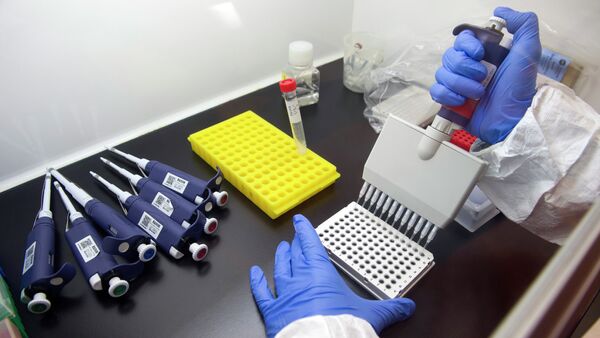"One of the scariest parts about the 2014 Ebola outbreak was that we had no treatments on hand; tens of thousands of people became sick and thousands of people died because we lacked a suitable treatment," Judd Hultquist, PhD, assistant professor of medicine in the Division of Infectious Diseases at Northwestern and the co-lead author of the study, said in a university press release.
"Part of the goal of this work was to better understand the biology behind Ebola viruses, so that we could better develop next-generation therapeutics."
Like other viruses, Ebola reproduces inside the cells of living hosts, producing thousands of identical copies of the original virus. Using the analytical technique of mass spectrometry, the researchers found that the human protein RBBP6, which is a 23-amino-acid-long peptide chain, can block Ebola virus infection.
"If you take that peptide and put it into human cells, you can block Ebola virus infection," Hultquist said. "Conversely, when you remove the RBBP6 protein from human cells, Ebola virus replicates much faster."
According to the Northwestern press release, proteins like RBBP6 that block virus replication are called "restriction factors."
"What we envision is a small molecule drug that mimics the peptide, and could be used in response to an Ebola virus outbreak," Hultquist said.
According for the US Centers of Disease Control and Prevention (CDC), Ebola is a deadly disease in people and nonhuman primates; most cases occur in sub-Saharan Africa. People can contract the virus through direct contact with an infected animal or a sick or dead person with the virus.
The virus was first discovered in 1976 near the Ebola River in the modern-day Democratic Republic of Congo.



